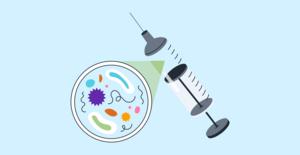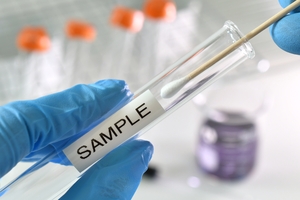Cholesterol test
in Montana
Own a clinic? Add your location.
Help patients book appointments with you on Solv. It's free!
2 instant-book locations

Labcorp
Labcorp
Self-pay pricing
Clear self-pay prices
No more surprise bills. Solv is committed to making getting healthcare as easy as buying groceries at the store, including knowing the price of care upfront.

Quest Diagnostics
Quest Diagnostics
Self-pay pricing
Clear self-pay prices
No more surprise bills. Solv is committed to making getting healthcare as easy as buying groceries at the store, including knowing the price of care upfront.
Easy Mobile Labs
Easy Mobile Labs
Own a clinic? Add your location.
Help patients book appointments with you on Solv. It's free!
Montana Cholesterol Tests
Cholesterol isn't always bad. It helps your body grow cells and produce hormones, among other things. Too much cholesterol, on the other hand, can be harmful.
Cholesterol is derived from two sources. Cholesterol is produced by the liver, and dietary cholesterol is obtained from the foods you eat. Cholesterol is found in animal products such as meat, dairy, and eggs. Saturated and trans fat-rich foods might cause your liver to create more cholesterol than you require, leading to harmful cholesterol levels.
High cholesterol raises the chance of heart attack and stroke, two of the most common causes of death in the US. Around 38% of persons in the United States have elevated total cholesterol levels. Because high cholesterol has no symptoms, it's crucial to have your cholesterol levels examined to ensure they're within normal limits. Cholesterol levels should be monitored in children and adolescents as well.
People over the age of 20 with a low risk of cardiovascular disease should have their cholesterol evaluated every 5 years, according to the CDC. Those with cardiovascular disease risk factors should have their cholesterol evaluated more frequently. Other heart-disease risk factors
Fortunately, you can lower your cholesterol by making easy lifestyle adjustments. Reduce your intake of saturated fats and eliminate trans fats as much as possible from your diet. Trans fats are found in store-bought cookies and baked goods, and are commonly described on food labels as "partially hydrogenated vegetable oil." Consume plenty of fresh fruits and vegetables and limit your intake of processed foods, particularly those high in sugar.
Get additional physical activity and exercise at least three times a week. Physical activity of any kind is beneficial. During your lunch break, go for a walk instead of taking the elevator. Aim for a minimum of 10,000 steps every day.
Don't smoke, and only consume alcohol in moderation. These modifications will not only lower your cholesterol, but they will also enhance your cardiovascular health.
Cholesterol Test FAQs
Do I need to see a doctor before getting a cholesterol test?
Typically, a cholesterol test is a simple blood test. While you are not need to consult a doctor first, it is a good idea to phone your physician's office and inquire about the type of test that will be performed. This is because some cholesterol tests may necessitate a fast prior to the test.
How much do cholesterol tests cost?
The cost of a cholesterol test is determined by a number of factors, including the type of test necessary, the location where the test is performed, and whether or not you have health insurance. A cholesterol test at a walk-in clinic or drugstore, for example, could cost roughly $100.
Does insurance cover cholesterol screening?
Cholesterol testing is frequently done as part of a yearly physical examination, which is usually covered by insurance. Your insurance plan, however, may impose some restrictions on cholesterol testing. They might, for example, pay for a cholesterol test every five years. You can call your insurance carrier or look at your policy documentation to find out what is covered by your policy.
How can you tell if you have high cholesterol without a test?
There are no signs or symptoms of high cholesterol. A blood test is the only way to determine if you have high cholesterol. Men and women over the age of 35 and 45 should get their cholesterol levels checked. If you have a BMI of 30 or more, don't get enough exercise, smoke, drink too much alcohol, or consume too much saturated or trans fat, you may be at risk for high cholesterol.
What can I eat the night before a cholesterol test?
If your doctor has advised you to fast before your cholesterol test, you should avoid eating or drinking anything other than water the night before. You can eat and drink normally if your doctor has not advised you to fast. If you're not sure whether or not you should fast, talk to your doctor.
How long should I fast before a cholesterol test?
Before a cholesterol test, most people must fast for 9 to 12 hours. Fasting before your test will help ensure that a single meal has no effect on your results. Fasting is not required for all cholesterol testing, so check with your doctor and make sure you follow their instructions.
How do I interpret cholesterol blood test results?
Total cholesterol, LDL cholesterol, and HDL cholesterol are all measured in a cholesterol test. Triglycerides and very low-density lipoprotein may also be present (VLDL). Your total cholesterol and LDL should be low, while your HDL should be high. Asking your doctor for help interpreting your results is always a smart idea. A greater HDL level, which is actually desirable, could be the cause of high total cholesterol. It's critical to comprehend the breakdown of your test results.
What is a normal cholesterol range?
Milligrams per deciliter (mg/dL) is the unit of measurement for cholesterol. Total cholesterol values of less than 200 mg/dL are generally considered healthy in adults. A blood sugar level of 240 mg/dL is regarded as extremely high. LDL cholesterol levels should be less than 100 milligrams per deciliter. LDL cholesterol levels of 160 mg/dL are considered high. HDL levels should be at least 60 mg/dL. A low HDL level of 40 mg/dL or less is a significant risk factor for heart disease.
How can I book a cholesterol test through Solv?
It's simple to schedule a cholesterol test with Solv. Simply type "cholesterol" into the search box and choose the cholesterol test option when it appears. You have the option of using your existing location or entering a new one. On the following page, you'll find a list of providers in your area, as well as available appointment times. To arrange an appointment, choose a time and place that is convenient for you and submit your information.
Can I do an at home cholesterol testing?
Cholesterol tests can be done at home, but they aren't always accurate or reliable. Typically, home cholesterol testing entails pricking your finger with a lancet and then transferring a few drops of blood to a test strip. Unfortunately, if not performed correctly, these tests can be erroneous. Furthermore, they usually only assess total cholesterol, which isn't as beneficial as knowing your LDL and HDL split. Have the test done by a certified healthcare provider for the best results.

Updated on Feb 25, 2025
Solv has strict sourcing guidelines and relies on peer-reviewed studies, academic research institutions, and medical associations. We avoid using tertiary references.
Related searches
A1C Test in Montana
Basic Metabolic Panel in Montana
Blood Test in Montana
CMP Test in Montana
COVID-19 Antibody Test in Montana
Cholesterol Test in Montana
Diabetes Test in Montana
Diagnostic Test in Montana
H Pylori Test in Montana
Hepatitis test in Montana
Mono Test in Montana
Pregnancy Test in Montana
RSV Test in Montana
STD Testing in Montana
Strep Test in Montana
TB Test in Montana
Thyroid Test in Montana
Vitamin D Test in Montana
Everyday Healthcare, Simplified
Expert advice to help you live your best life



